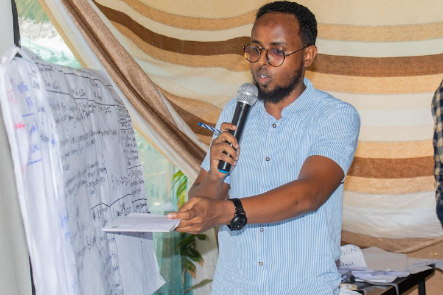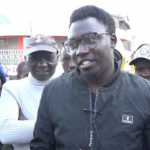Women in Garissa and the wider Northeastern region are being urged to step forward into leadership roles and actively engage in decision-making processes. Traditionally, leadership within the dominant Somali community has been predominantly male-oriented, but efforts are now underway to promote greater gender inclusion.
The Muslim for Human Rights organization, through its Electoral Conflicts Mitigation and Civic Education Support program, recently organized a women’s civic education forum in Garissa. The forum aimed to empower women by educating them about their rights and opportunities for meaningful participation in governance and decision-making.
Abdishukri Jelle, the county coordinator for Muhuri, emphasized the importance of this initiative in enabling women to assert their perspectives and contribute effectively within the legal framework. The goal is to foster a more inclusive society where women’s voices are heard and respected in shaping the future of their communities.
“Women in Garissa and the larger pastoralist community carry the overwhelming burden of reproductive labour within families. This includes collecting fuel and water and cultivating subsistence crops to feed their families,” he said.
“Participating in public decision-making beyond their immediate needs for survival may seem like an impossible extra burden. Therefore, this initiative aims to empower women to contribute their perspectives and inputs within the framework of the law.”
Jelle said institutional gender bias represents a challenge to all women seeking equal participation and competing for leadership positions.
Skepticism and mistrust about women’s ability to lead and the stereotypes and prejudices about their role in society and their lack of suitability for leadership roles and religious decision-making, are among the major challenges women in Garissa face.
“Lack of education and low levels of literacy make access to information difficult and commonly undermine the confidence and skills needed to enter public life whether at village, community, local, or national level,” he said.
Abdishukri Jelle highlighted that women often lack the networks, contacts, and experience typically associated with public leadership roles. He emphasized that initiatives like the civic education programs conducted by Muhuri are crucial in bridging these gaps and helping women develop these necessary strengths.
Fatuma Badhia, a prominent human rights activist based in Garissa and an advocate for women’s leadership, expressed regret over the persistence of regressive cultural beliefs that continue to hinder women’s progress. She noted that these beliefs contribute to further oppressing women in society.
However, Badhia also highlighted the determination among residents to challenge these negative narratives and perceptions. She pointed out that empowerment programs, such as those facilitated by Muhuri, play a significant role in empowering women and shifting societal attitudes towards greater gender equality and inclusion in leadership.
“I want to sincerely thank Muhuri, which through the ECCES programme, has embarked on a training composed of youth and women. We all have a role to play in changing the narratives and perceptions in the society especially on matters leadership,” she said.
Abdiwahab Ibrahim, regional coordinator for the National Gender and Equality Commission, said the commission is committed to promoting gender equality and ensuring that the rights of all citizens are upheld.
Despite notable strides made as a country, gender disparities persist across various sectors in Kenya, including political representation, economic participation, and access to education and healthcare. Ibrahim highlighted that in the three counties of Northeastern Kenya, only two women were elected to the Wajir County Assembly, underscoring the ongoing challenges in achieving gender equality in leadership roles.
He urged stakeholders to sustain their support for initiatives aimed at advancing women’s education and civic engagement. Ibrahim emphasized the importance of collective efforts to create an enabling environment where women are empowered to lead, make decisions, and contribute effectively to societal development.
Ibrahim affirmed the commitment of the National Gender and Equality Commission (NGEC) to this cause, pledging continued collaboration with organizations like MUHURI to pursue shared objectives in promoting gender equality and women’s empowerment.
“Restrictions on women’s mobility, be they cultural, legal, or the result of women’s own fears of encountering violence and harassment if they leave the safety of their own communities



